Chicago School Crossing Guards To Write Parking Tickets
[Ed: This piece originally appeared at The Expired Meter]
Every morning, children who walk to school are familiar with the smiling, friendly faces and the outstretched arms of their local crossing guard who ensures they get safely to class each day during the school year.
But what do crossing guards do when school’s out for summer?
At least some of the friendly faced school crossing guards are spending their summer vacation writing parking tickets to Chicago drivers on behalf of the city.
It began as a pilot program last summer, and as a way to give crossing guards a way to continue to bring in a paycheck when school was finished in June, according to Crossing Guard Coordinator John Maciezjewski, a retired police officer. This year it has been rolled out city wide to give summer employment opportunities to the over 1100 crossing guards working for the city.
Want To Spy On The Kids/Spouse? Onstar Has The Answer!
GM’s Onstar division has long raised privacy concerns among the professionally paranoid, but now it’s putting all that observational power into the hands of consumers, with a pilot program called “Family Link.” Described in GM’s presser as “a new optional service that will explore ways subscribers can stay connected to their loved ones,” the service includes
- Vehicle Locate: The subscriber can log on to the Family Link website to view a map with the vehicle’s exact location at any time.
- Vehicle Location Alert: Subscribers can set up email or text message notifications to let them know the location of their loved one’s vehicle. They can choose the day, time and frequency of the alerts.
But that’s not all: if the pilot proves that consumers are willing to pay for the right to surveil their loved ones,
Future considerations for the pilot include Speed Alert, Boundary Alert and Arrival/Departure Alert.
Forget Big Brother… with this system, you can be Big Daddy, in the center of your own little family-sized panopticon. From making sure the kids stay out of trouble (“Say, son, what were you doing in downtown Detroit last night?”) to checking up on your loving spouse (“Honey, why did you say you were going to the gym, when you just parked for an hour at the Slee-Zee Snooze Motel?”), it’s how today’s on-the-go families foster an atmosphere of suspicion and mistrust. Because why let the government have all the voyeuristic fun?
Los Angeles, California Red Light Camera Program Officially Canceled
Red light cameras are coming down in Los Angeles, California after midnight on Sunday. The city council yesterday voted unanimously to drop the program primarily over the county court system’s refusal to enforce unpaid tickets, depriving the city of millions in expected revenue. The council instructed the city attorney to work with American Traffic Solutions (ATS) to decide the cheapest way to remove the systems and process all tickets issued through the end of the month.
“We need to be clear about what we are doing here today with this particular vote,” Councilman Dennis P. Zine said. “I don’t want to give the wrong perception to the public that this program may continue in the future. As I noted, photo red light will be gone in four days. Cameras need to come down immediately to not create a smokescreen to affect the hope that we may turn them back on.”
Los Angeles Red Light Cameras Die On Sunday; If You Have A Ticket, You Might Want To Ignore It
The LA Times reports:
The City Council voted unanimously Wednesday to halt Los Angeles’ controversial red-light camera program, which has ticketed more than 180,000 motorists since beginning in 2004. The program will officially end July 31.
The action followed a similar vote last month by the city Police Commission, which sought to drop the 32-camera program in part because of the difficulty in collecting fines.
But wait, the news gets better! Earlier today, the LAT helped bust the photo enforcement program wide open, reporting:
City officials this week spotlighted a surprising revelation involving red-light camera tickets: Authorities cannot force violators who simply don’t respond to pay them. For a variety of reasons, including the way the law was written, Los Angeles officials say the fines for ticketed motorists are essentially “voluntary” and there are virtually no tangible consequences for those who refuse to pay.
It’s a little more complicated than that, but those are the broad strokes.
Richard Retting Cashes in on Lifetime of Traffic Camera Advocacy
The one man most responsible for the spread of red light cameras in the United States is now enjoying the fruit of his labor. Richard A. Retting was New York City’s deputy assistant commissioner for traffic safety programs as the Big Apple considered becoming the first in the US to operate intersection cameras. Planning for the program began in 1983 and continued through 1991 when then-Mayor David Dinkins activated the system. For this achievement, Retting was dubbed the father of the red light camera in America, and today he is earning money directly from the systems that have followed New York’s lead.
California City to Vote on Banning Red Light Cameras
A third jurisdiction in Orange County, California is taking steps to ban the use of red light cameras. Later today the city council in Orange will vote on the first reading of an ordinance that would deter future councils from considering the devices. The city of 136,000 residents has never used photo enforcement, but the council unanimously directed the city attorney’s office in October to come up with the most effective language to deter future councils from considering them.
Wisconsin Appeals Court Makes Cautious Driving a Crime
Driving with extreme care can be evidence of a crime, according to a ruling Thursday by the Wisconsin Court of Appeals. Motorist Kevin J. Burch was driving his pickup truck through West Salem at 12:44am when a police officer took notice. The officer watched as the truck slowed to a near stop at an intersection, even though there was no stop sign. At the next block, Burch again came to a full stop before proceeding. There was no other traffic nearby. The officer had taken a “drunk driving course” and found the driving suspicious — especially since he said it was “bar time.” The officer conducted a traffic stop.
Where To Drive Drunk In Detroit
This handy pocket chart (print out and laminate), brought to you courtesy of the Freep, shows you the good and bad parts of the Detroit Metro when it comes to driving under the influence. We supply it in extra large, because- well, you know.
As you can see, in Detroit proper, the consequences of getting caught over the limit are pretty benign.
North of 8 Mile Road, matters get dicey. And the map tells only half of the story.
GHSA Surveys The Science Of Distraction, Finds 15%-30% Of Crashes Involve Distracted Drivers
The Governor’s Highway Safety Association has reviewed a number of studies on distracted driving, and its report [ PDF here] shows a number of disturbing findings. A few of the highlights (or is that lowlights?):
- At least one driver was reported to have been distracted in 15% to 30% of crashes at all levels, minor to fatal. The proportion of distracted drivers may be greater because investigating officers may not detect or record all distractions. In many crashes it is not known whether the distractions caused or contributed to the crash.
- In almost 80% of all crashes and 65% of near-crashes the driver was looking away from the forward roadway just before the incident and that secondary task distraction contributed to 22% of the crashes and near-crashes
- about two-thirds of all drivers reported using a cell phone while driving; about one-third used a cell phone routinely. In observational studies during daylight hours in 2009, between 7% and 10% of all drivers were using a cell phone… about one-eighth of all drivers reported texting while driving. In observational studies during daylight hours in 2009, fewer than 1% of all drivers were observed to be texting.
- Cognitive distractions by themselves – thinking about something other than driving, without any manual or visual distraction – can affect driving performance. Two recent studies reinforce the conclusion that distractions affect the mind, not just the eyes, ears, or hands
- [Two] studies found that crash risk was about four times greater when using a cell phone. Hands-free phones did not appear to be any safer than hand-held phones.
- In the only study of texting bans, HLDI studied their effect on collision claims using the same methods as their 2009 study of cell phone laws. They concluded that texting bans did not reduce collision claims. In fact, there appears to have been a small increase in claims in the states enacting texting bans compared to neighboring states… there is no evidence that cell phone or texting laws have reduced crashes.
If you’re at all interested in a relatively concise (50 pages) overview of the state of distracted driving research, this report is well worth a download. Ultimately, though, the report offers more challenges than easy answers, as it largely debunks the notion that increased enforcement or hands-free laws make much of a difference in the problem. [via AutoObserver]
Texas: Federal Judge Again Blocks Defense of Houston Anti-Camera Vote
On Sunday red light cameras will begin issuing citations once again in Houston, Texas despite the election result of November where a majority demanded the devices be taken down. US District Court Judge Lynn N. Hughes continues to deny the ability of the sponsors of the anti-camera initiative, Randall Kubosh and Francis M. Kubosh, to defend their effort against an election challenge mounted by American Traffic Solutions (ATS). Hughes on Wednesday ordered several legal arguments by the Kuboshes erased from the record.
“In court pleadings, the Kuboshes may not denominate themselves as intervenors, counter-defendants, third-party defendants, respondents, or anything else that they are not,” Hughes wrote in a separate July 7 order striking another legal brief. “In public, they may call themselves whatever they want.”
Pennsylvania Court Hides Free Rides for Toll Collectors
Public employees can take rides on toll roads at taxpayer expense, but these trips are not subject to disclosure according to a ruling Tuesday by the Pennsylvania Commonwealth Court. A three-judge panel denied the freedom of information request of the Harrisburg Patriot-News for E-ZPass transponder usage information data by for employees of the Pennsylvania Turnpike. On October 21 the paper sought details on the 2000 toll collectors who do not pay for use of the road, regardless of whether the travel was job related.
When Will The Government Address The "Epidemic" Of Left Lane Banditry?
Government officials like Transportation Secretary Ray LaHood spend much of their time justifying their positions by tilting at national windmills like the “epidemic” of distracted driving, generally with relatively modest results. And yet, despite the massive increase in mobile device use over the last decades or so, on-road deaths per vehicle mile traveled are at an all-time low. So here’s a new “epidemic” for Secretary LaHood: lane discipline. Every time I take to the freeway, I’m absolutely shocked by the number of people driving at or below the speed limit in the left lane, and the number of people who stay in the fastlane even when there’s nobody to pass. And I don’t have to rely on anecdotal evidence to know lane discipline is a problem in America (or, at least in the Pacific Northwest). According to the PEMCO Insurance Northwest Poll,
43 percent of Washington drivers don’t know that impeding the flow of traffic in the left lane is against the law.
To which I say “bullshit.” Not only is it illegal to impede left lane traffic in Washington (and Oregon, where I live), but the freeways in both states have regular “keep right except to pass” signs, so the ignorance defense doesn’t really apply. People simply don’t care about maintaining lane discipline, and ignore any sign that urges them to do so. Clearly signage and the National Motorist’s Association’s Lane Courtesy Awareness Month aren’t doing the trick… and neither does giving the finger.
Tennessee: Man Sues Traffic Camera Company Over Double Billing
Drivers often get the run around when dealing with the traffic ticket bureaucracy. When fighting city hall, individuals usually have no little hope of prevailing. Motorist Harry A. Church realized that with red light cameras, the system was outsourced from city hall to a company that could be more easily sued. After being double-billed by the Australian red light camera company Redflex Traffic Systems, Church filed a lawsuit that has been taken up by the US District Court for the Eastern District of Tennessee.
Garfield Heights Mayor Wants City To Become Red Light District, Again
Last November, citizens of Garfield Heights, OH, banned the use of red light cameras in the city. The vote was close, 4,827 to throw the cameras out against 4,735 for keeping them. But presidencies were decided on a slimmer margin. The keeps the cams side had powerful support: A PAC called “Safe Road Ohio” lobbied for the cameras, with the requisite pictures of little children.
According to the Plain Dealer, the primary donor of this PAC is “Redflex Traffic Systems — the company that operates the city’s camera program and pockets $35 from every speeding ticket issued.” The Garfield Heights Council doesn’t seem to hold democracy in high esteem. Last week, the Council moved to bring the cameras back into the city.
California: More Cities Dropping Red Light Cameras
Three Southern California cities are taking steps to rid themselves of red light cameras. In Westminster, the city council decided unanimously on Wednesday to ask voters to ban the use of red light cameras in a referendum scheduled for November 2012.
“We gave very clear instructions… to city managers that this red light camera system will not be discussed or considered to be installed in any part of our city,” Councilman Andy Quach said on Wednesday. “Tonight is basically a reiteration of that already existing policy…. The council has historically never liked anything that could be considered monitoring its citizens by Big Brother.”
Massachusetts Court Denies Meaningful Right to Contest Parking Tickets
The highest court in Massachusetts believes there is no due process problem with charging motorists $300 to challenge a $5 or $15 parking ticket. On Thursday, the Supreme Judicial Court ruled that the appeal procedures in the city of Northampton satisfied constitutional requirements even though motorists were denied an in-person hearing to contest the legitimacy of a citation. The city only allowed people either to pay the fine in full or send “a signed statement explaining his objections.”
North Carolina to Seize Speeding Cars That Fail to Pull Over
Beginning December 1, North Carolina will join Australia in having laws on the book mandating the seizure of vehicles for certain speeding offenses. On June 23, Governor Bev Perdue (R) signed the “Run and You’re Done” bill into law which authorizes a county sheriff to take and hold the car of anyone accused — not convicted — of speeding away from a police officer. The state House and Senate passed the measure unanimously.
Under the new law, the confiscation becomes permanent if a judge believes the car or motorcycle was used to elude a police officer while speeding more than 15 MPH over the limit with at least one other aggravating factor, such as having someone under 12 years old in the vehicle or the vehicle was at some point in a highway work zone, regardless of whether any workers are present.
South Carolina Supreme Court Busts Town for Ignoring Camera Law
In 1998, South Carolina lawmakers mandated that police use dashboard mounted cameras to document the arrest of anyone arrested for driving under the influence of alcohol (DUI). The state supreme court on Monday ruled that the town of Mount Pleasant was not in compliance with this statute, which states a suspect “must have his conduct at the incident site and the breath test site video recorded.”
New Jersey: Court Approves Private GPS Spying
Police are not alone in the ability to secretly use GPS devices to track someone without his knowledge, the New Jersey Superior Court’s Appellate Division ruled Thursday. A three-judge panel made this decision in the context of a privacy invasion suit brought by Kenneth R. Villanova against Innovative Investigations Inc after his now ex-wife hired the private-eye company to spy on him. She intended to document alleged infidelities prior to filing for divorce in May 2008. At the firm’s suggestion, Villanova’s wife installed the tracking device on her husband’s GMC Yukon-Denali which followed the vehicle’s every move for forty days.
Washington: City Sued for Blocking Anti-Camera Referendum
Opponents of red light cameras and speed cameras are taking the offensive against city councils and camera vendors who have been taking extreme measures to keep the issue of automated ticketing off the ballot. A Cowlitz County, Washington superior court judge will hear arguments later today in a countersuit that accuses the city of Longview of violating an anti-SLAPP law. The state last year banned what are called “strategic lawsuits against public participation” with a measure that grants expedited court procedures to initiative sponsors and a $10,000 penalty against anyone found to be exploiting the legal system to thwart a petition drive.
Cheat Until The Cows Come Home: Luxury Cars Insured As Farm Vehicles
So let’s say you don’t live in Washington or Oregon , and you don’t want to buy a GM vehicle, what do you do to save on car insurance? Easy: You say you drive it on your farm. Auto insurers offer farm-use discounts of up to 20 percent. And a lot of less-than-gentleman farmers harvest the savings.
California Court Softens Ban on Testimony Questioning Breathalyzer Accuracy
Since 1994, the California courts have banned defendants from using scientific evidence to challenge certain charges for driving under the influence of alcohol (DUI). To foil defense attorneys who had become increasingly successful with juries, the state created a “per se” DUI charge that made it a crime to have 0.08 reading on a breathalyzer machine regardless of whether an individual was actually drunk or had a 0.08 percent blood alcohol content (BAC) level. Because of physiological variability among individuals, some people with the same blood alcohol level might read higher or lower on the breath machine. Challenges based on these differences are known as “partition ratio” arguments. The California Court of Appeal on Friday loosened what had become effectively a ban on scientific criticism of breathalyzer reliability.
IIHS Red Light Camera Study "Not Credible"
[Editor’s note: My take on the IIHS study’s shortcomings can be found here]
The public relations arm of the insurance industry yesterday released a report claiming red light cameras are popular in big cities. About 24 hours after Insurance Institute for Highway Safety (IIHS) had begun spinning this study to media outlets, only a handful had run stories. Editors at one daily publication told TheNewspaper that they passed on writing about a claim they did not find credible.
Washington: Anti-Camera Group to Shame City Council
Opponents of automated ticketing machines in Monroe, Washington have turned to a new tactic in battling a city council that refuses to give up the use of red light cameras and speed cameras. Instead of engaging the city and a wealthy traffic camera company in a costly legal battle, the group BanCams.com decided Wednesday to shame the council at every election until officials follow the public will.
Louisiana Supreme Court Allows Vehicle Searches on a Hunch
The Louisiana Supreme Court on Friday gave a green light to police officers looking to search automobiles without a warrant. The court ruled on an interim appeal in the ongoing trial of Derrick R. Kirton, 30, and Crystal N. Strate, 27, who were charged on February 23 with distribution and possession of heroin, respectively. A judge in the Orleans Parish Criminal District Court had ruled that the police search of Kirton’s vehicle was unlawful because it was not based on probable cause. The prosecution appealed.
US Supreme Court Confirms Confrontation Right in Radar, DUI Cases
In a decision that has wide-ranging implications for photo enforcement, speeding tickets and driving under the influence of alcohol (DUI) charges, the US Supreme Court yesterday reconfirmed the Sixth Amendment right to confront one’s accuser applies to analysts who claim to have certified evidence from a machine. The 5-4 decision concluded that “stand-in” expert witnesses are not a substitute for the individuals who actually conducted the tests. The decision broadens the applicability of the landmark Melendez-Diaz ruling from 2009, which has already led to appellate division cases in four California counties to throw out red light camera evidence.
Traffic Camera Companies Step Up Fight Against Ballot Measures
Although red light camera supporters insist the programs enjoy broad support among the public, traffic camera companies are taking extraordinary measures to block ballot measures that would gauge public sentiment on the issue. Anti-photo enforcement initiatives are meeting corporate opposition in five cities in Washington state while American Traffic Solutions (ATS) is moving to reinstate red light camera use rejected by a majority of Houston, Texas residents. Albuquerque, New Mexico appears to be the only city with an unopposed referendum vote in play.
Louisiana Legislators Narrowly Reject Car Seizure for Littering
Louisiana lawmakers came close to enacting legislation that would have confiscated vehicles driven by people accused of littering. The bill failed in the House 49 to 46 on Monday after having cleared the state Senate last week by a 34 to 1 vote. Had two state representatives switched their votes, the measure would have been sent to the governor.
US Supreme Court Updates Exclusionary Rule for Automobile Searches
The US Supreme Court on Friday ruled that evidence from an objectively unconstitutional automobile search can still be admissible in court as long as the search took place prior to court decisions that recognized stronger protections in the Fourth Amendment. Specifically, the April 2009 decision in the case Arizona v. Gant overturned prior precedent and required police to get a warrant to search a car when an arrested suspect posed no realistic threat to officer safety ( view ruling). Willie Davis was arrested over two years earlier in Greenville, Alabama when that rule did not apply.
Federal Judge Overturns Public Vote in Houston, Texas
American Traffic Solutions (ATS) on Friday advanced toward its goal of reactivating the red light cameras to Houston, Texas. A majority of voters demanded in a November ballot vote that the cameras be taken down, but US District Court for the Southern District of Texas Judge Lynn N. Hughes believes the people had no right to vote.
The ruling was a major victory for the legal strategy of ATS General Counsel George Hittner, who worked with the Houston city attorney to create a lawsuit in which city officials, who want the cameras back, sued ATS, which also wants the cameras back. The case was not filed in state court, which would be the proper venue. Instead, Hittner had the case filed in the federal courthouse where his father happens to serve.
Florida City Agrees to Refund Illegal Red Light Camera Tickets
Some Florida are beginning to regret jumping on the red light camera bandwagon without bothering to wait for state legislative approval. On Wednesday, the Pembroke Pines city commission voted to approve a settlement with attorney Jason D. Weisser who filed a lawsuit against a number of towns that began automated ticketing before state law was changed last July to allow automated ticketing.
New Jersey Supreme Court Criminalizes Weak Breathalyzer Blows
Blowing into a breathalyzer weakly is grounds to convict someone of the crime of refusal, according to a May 26 decision by the New Jersey Supreme Court. Refusal carries penalties nearly as severe as a conviction for driving under the influence of alcohol (DUI). On November 29, 2007 at 2:36am, Sergeant Joe Morgan of the Woolwich Township police department pulled over Aaron P. Schmidt after noticing that he was driving 10 MPH under the speed limit. Morgan administered the usual field sobriety tests and decided to bring Schmidt to headquarters for a breath test.
Canada: Anti-Photo Enforcement Effort Heats Up
A campaign to reform or eliminate the use of red light cameras and speed cameras is heading up in Winnipeg, Canada. Earlier this month the group WiseUpWinnipeg kicked off the effort with a two-page, full-color advertisement in the Winnipeg Sun newspaper.
“Attention Winnipeg drivers, you are being deliberately deceived,” the ad warned. “The city of Winnipeg is engaged in a deliberate and dangerous campaign to induce photo enforcement violations and siphon your hard earned (cash).”
California Considers Bill to Shorten Yellow Times
The amount of yellow warning time at California intersections would drop along with speed limits under a bill being considered by the state legislature. The Senate Transportation Committee will hold a hearing Tuesday on Assembly Bill 529, a proposal that re-writes the state’s speed trap law so that cities would be able to round down all speed limits after conducting a traffic study. The measure passed the full Assembly by a 77 to 0 vote on May 19.
South Carolina: Renegade Photo Speed Trap in Jeopardy
Reports from residents suggest Ridgeland, South Carolina is ready to concede defeat regarding the freeway speed camera system operated in defiance of state law. The large recreational vehicle used to mail tickets to travelers passing through the town’s seven-mile stretch of Interstate 95 is no longer as visible as it once was. Under attack in both the state legislature and the courts, Mayor Gary W. Hodges has yet to officially announce the end of his controversial ticketing program.
New York: Ferrari Sues Over Seized Ferrari
A US district court judge ruled Tuesday that James B. Ferrari had a point when he sued Suffolk County, New York over its seizure of his 2003 Ferrari 360 Spider. Ferrari was arrested on suspicion of driving under the influence of alcohol (DUI) in the city of Bellport on May 26, 2009. That gave county officials an excuse to grab a car that sold for $190,000 when new.
“Ferrari is not the most sympathetic plaintiff, to put it mildly,” Judge Joanna Seybert wrote, overruling the county’s motion to dismiss the case. “But the Due Process clause protects everyone — even repeated drunk drivers. Here, Ferrari has adequately pled that Suffolk County violated his due process rights.”
California: Los Angeles Police Commission Votes Down Cameras
Red light cameras may disappear from the nation’s second-largest city. The police commission in Los Angeles, California voted 5 to 0 yesterday to deny renewal of the city’s photo enforcement contract with American Traffic Solutions (ATS). The decision is a stunning reversal for a program that has been in place for over a decade. Between 2004 and 2010, a private vendor has issued over 183,000 tickets worth more than $80 million. The problem is that the state’s share of that revenue is so great that the city claims it is losing money from the cameras, even though tickets are $476 each.
American Traffic Solutions Sues Former Top Executive
Photo enforcement vendor American Traffic Solutions last month filed a federal lawsuit against one of its own top employees. Michael J. Lenza worked for ATS as senior vice president for financial services from September 30, 2006 to May 13, 2011. Lenza’s job was to solicit business, but ATS now charges the former executive with secretly building a client base of his own on company time.
California: Court Strikes Down Cost Neutrality in Napa
Napa, California has suspended all court action on red light camera tickets until June 13 at the earliest. The city is scrambling after a May 26 ruling by the Superior Court’s appellate division in Napa County that found the city violated state law by paying Redflex Traffic Systems based on the number of red light camera tickets the Australian company issued. The city is asking for a rehearing of the case, but if that is denied the suspension will last until June 28 while the city files an appeal.
Louisiana: Cops Beat Up Old Man For Accelerating Slightly
Police in Louisiana slammed a 67-year-old man into the ground, arresting him over a questionable traffic violation. The state court of appeals ruled May 11 that Calvin D. Miller’s injuries were only worth $25,000 in compensation. Miller had been driving his big rig logging truck home to Florien on US Highway 171 at 5:30pm on July 13, 2007. As he passed through the Village of Hornbeck, Officers Kenneth Hatchett, Jr., and Andy Mitchell, 19, pulled him over because he began speeding up “about 100 feet” before the limit changed from 45 to 55 MPH. Having driven the road for the past forty-seven years, Miller was quite familiar with the speed limit. He insisted he was not speeding.
“I can see right now you’re going to need an attitude adjustment,” Officer Hatchett said to the five foot, six inch tall elderly man.
California Court: Turn Signal Unnecessary When Nobody is Looking
California drivers do not need to use their turn signals if no other car is nearby according to a ruling handed down Friday by the state’s second-highest court. A three-judge panel of the court of appeal found that La Habra Police Officer Nick Wilson was in the wrong when he stopped Paul David Carmona, Jr. for making a right-hand turn in his Chevy SUV without signaling. Wilson was about 55 feet away traveling in the opposite direction at the time Carmona made his turn. The road was otherwise empty.
Australia: Lawmakers Reject Call for Speed Camera Review
A November study by the University of Adelaide recommended that a commission be established to review the placement and use of speed cameras in South Australia. Last month, the state parliament rejected any suggestion that policies relating to automated ticketing could be questioned.
As part of a parliamentary internship program, a research report reviewed existing research and applied the findings to the road safety situation in South Australia. The results were provided to Ivan Venning, a Liberal Party member of House of Assembly, who attempted on May 19 to win approval for a select committee to examine the use and effectiveness of photo enforcement. During debate, Venning pointed out several other states were currently conducting reviews of their own.
FLIR, License Plate Recognition, and Small Block, Oh My!
AOL’s Translogic [via PopSci] takes a look at the LAPD’s brand-spankety new Chevy Caprice PPV, the born-again Pontiac G8 that you can’t buy at a dealership. But rather than looking at the Caprice’s cop car-creaming performance (as did the Michigan State Police), this report focuses on the LAPD’s high-tech toys… which could just make the Caprice’s V8, rear-drive abilities less necessary than ever. Still, between the Holden-powered, rear-drive performance, the footprint-spying night vision camera and the automatic license plate recognition system, the Caprice PPV will probably make you think twice about speeding the next time you’re visiting the City of Angels.
New Mexico Supreme Court Lets Cops Grab Guns During Stops
Police officers in New Mexico can take guns away from drivers who pose no threat. The state supreme court ruled on May 20 that “officer safety” is more important than any constitutional rights a gun-owning motorist might have. The ruling was handed down in deciding the fate of Gregory Ketelson who was a passenger in a vehicle pulled over on November 13, 2008.
During the stop, Hobbs Police Officer Miroslava Bleau saw a 9mm handgun on the back seat floorboard. Ketelson and the driver of the car were ordered out and away from the car while Officer Shane Blevins grabbed the gun. The officers later learned that Ketelson, as a convicted felon, could not legally possess a firearm. The court, however, only considered whether the officers acted properly in taking the gun before they had any reason to suspect Ketelson, who was entirely cooperative during the encounter, of committing a crime.
Australia: Speed Camera Driver Busted for Speeding
A government labor relations board in Australia yesterday upheld the firing of an employee busted for driving a speed camera van at more than double the speed limit. Stuart Rollo appealed to Fair Work Australia after he was terminated by Serco Traffic Camera Services in Victoria on December 10 for driving 102km/h (63 MPH) 50km/h (31 MPH) zone. On Thursday Commissioner G.R. Smith determined the firing was warranted by the circumstances.
FBI Joy Ride Wrecks Ferrari, DOJ Refuses to Pay Damages
The US Department of Justice is deploying all of its legal muscle to avoid paying the price after an FBI agent destroyed an exotic car during a joy ride. After nearly two years of trying to recover the money owed by the government, Motors Insurance Company filed a lawsuit against the government seeking the full $750,000 value of the wrecked 1995 Ferrari F50.
Washington Supreme Court Considers Anti-Camera Referendum Battle
Justices of the Washington State Supreme Court on Tuesday openly questioned whether it was proper for a city and a photo enforcement contractor to thwart the initiative process on the issue of traffic cameras. The question has become increasingly relevant as activists in the cities of Longview and Monroe on Monday turned in signatures they believe will be sufficient to call for a vote on banning red light cameras and speed cameras. Less than a week ago, a Chelan County Superior Court judge ruled that activists in the city of Wenatchee were forbidden from attempting to bring the question of cameras to the voters ( view ruling).
Missouri: Judge Finds Red Light Camera Program Illegal
A circuit court judge in St. Louis, Missouri on Friday ruled the city’s use of automated ticketing machines violated state law. Since 2007, St. Louis gave the private company American Traffic Solutions (ATS) the right to issue tickets worth more than $30 million to the registered owners of vehicles that are photographed at local intersections. A class action suit by several motorists challenged the program on various legal and constitutional grounds.
Ohio Appeals Court Tosses Laser Ticket Over Model Number
Cincinnati motorist Thomas H. Starks spent nearly a year fighting a $150 speeding ticket he received from the Ohio State Highway Patrol. On Monday the arguments he made on his own behalf were vindicated by the state’s second-highest court. A three-judge panel threw out evidence provided by a Laser Technology Inc (LTI) UltraLyte laser speed gun on the grounds that state officials never bothered to certify its accuracy. Instead, they just assumed the certification of an older model, the LTI 20-20, would suffice.
Starks would not let that difference slide past the judge. On June 24, 2010, Trooper Eric Witmeyer had accused Starks of speeding on Interstate 75 in Franklin Township where the speed limit had been reduced to 55 MPH. Starks was put on trial on July 23, 2010. Starks insisted that the state had to prove the device was properly certified.
Wisconsin Appeals Court Clarifies Dashcam Evidence Rules
The Wisconsin Court of Appeals on Wednesday gave its first ruling on how dashcam evidence would be treated at the appellate level. A three-judge panel decided that the proper legal standard when evaluating a video is to overturn a trial judge’s decision only it is “clearly erroneous.”
The context was provided by the November 4, 2009 arrest of Jeffrey D. Walli in Sheboygan. The court was asked to determine whether Sheboygan Police Officer Brandon Munnik had a valid reason for pulling Walli over in the first place. Munnik claimed that around 11:22pm Walli’s car nearly sideswiped him, so he flipped on his emergency lights, which triggered his dashboard-mounted video camera, and gave chase. Munnik testified that the resulting video showed Walli’s car over the center line and was a legitimate traffic violation. Walli’s attorney disagreed with that take.
California Court Denies Public Trial for Camera Tickets
Members of the public are not allowed to attend red light camera trials and other proceedings at the Superior Court of California courthouse in the city of Corona. For the past several weeks a policy has been place denying entry to anyone who does not have a direct involvement in a specific case scheduled that day. Court security checks anyone attempting to enter the building.
“Please be advised that this court facility is closed to the general public,” a sign posted at the door states. “The facility conducts criminal trials Monday through Friday and only jurors, witnesses and associated trial personnel are permitted to enter. On Fridays, the facility is also open for litigants reporting for court trial on traffic or minor offense matters.”
Missouri: State Moves for Longer Yellow, Reduced Violations
The Missouri state Senate yesterday voted to require local jurisdictions to adhere to minimum standards for yellow warning time at intersections. State Senator Jim Lembke (R-St. Louis), an opponent of the use of red light cameras, introduced amendments to an omnibus transportation bill designed to limit the desirability of photo enforcement. His colleagues went along with language mandating that signals on all roads adhere to the bare minimum “nationally recognized engineering standards.”
Federal Court: Talking Back to a Cop Can Cost Your Job
Speaking your mind to a police officer during a traffic stop is not free speech, according to the Tenth Circuit US Court of Appeals. A three-judge panel ruled Thursday that Colorado Springs, Colorado Police Officer Duaine Peters did nothing wrong in having Miriam Leverington fired from her job as a nurse at Memorial Health System for talking back after he wrote her a speeding citation.
Florida House Votes to Ban Red Light Cameras
Less than a year after the Florida legislature enacted legislation authorizing the use of photo enforcement, the state House of Representatives wants to reverse course. By a 59 to 57 vote yesterday lawmakers approved a bill repealing the provisions of the Mark Wandall Act.
“The unequivocal data that I’ve seen is that these intersections have become more dangerous not less dangerous with the advent of red light cameras,” bill sponsor Representative Richard Corcoran (R-New Port Richey) said. “All the data I’ve looked at has shown overwhelmingly that these intersections become less safe.”
Federal Court Endorses Warrantless GPS Tracking
The US Court of Appeals for the Seventh Circuit ruled yesterday in favor of police officers who attach GPS tracking devices to vehicles without first obtaining a warrant. The three-judge panel insisted searches of this sort do not violate the Fourth Amendment after considering the case of Juan Cuevas-Perez.
Washington Appeals Court Upholds Mandatory Vehicle Impounds
Washington state’s second highest court endorsed the growing municipal practice of using extended vehicle impound periods to rack up fees. The a three-judge court of appeals panel considered the question in the context of whether Raymond Mann’s vehicle was rightly taken for thirty days by Kent police on March 13, 2009.
California: Court of Appeal Refuses to Hear Parking Ticket Cases
California’s second highest court has no interest in dealing with parking tickets. A three-judge panel of the Court of Appeal on April 12 rendered a decision in a case involving nothing more than a disputed $44 parking ticket. Motorist Angelica Guevara argued that the citation she received on December 28, 2008 for parking in Bell was void because the city failed to provide adequate notice of overnight restrictions. The justices made it clear they will not consider the merits of this or any other parking case.
Massachusetts Court: Marijuana Smell Not Enough for Traffic Stop
The highest court in Massachusetts ruled Tuesday that a police officer is not justified in stopping and searching an automobile merely because he smells the presence of marijuana. The Supreme Judicial Court took up the case of Benjamin Cruz to clarify the legal impact of a 2008 voter referendum that had decriminalized possession of less than one ounce of pot in the Bay State.
California: Police Officials Narrowly Back Red Light Cameras
The Los Angeles, California police commission voted 3-2 on Tuesday to approve a report defending the status quo regarding the use of red light cameras. In January, the city council tasked the commission with reviewing a report by Safer Streets LA that found the department had misrepresented accident statistics to make the program appear effective ( view report, 250k PDF). Another report suggested lengthening yellow times one second beyond the bare minimum would reduce violations and accidents ( view report, 450k PDF). A third report concluded that 75 percent of tickets were issued for rolling right turns, which have never been a significant cause of accidents in Los Angeles ( view report).
What's Wrong With This Picture: Charlie Sheen's Other Escort Edition
The Washington Post‘s Paul Duggan blogs that Charlie Sheen arrived late to his Washington DC show after being escorted by local police officers at speeds of at least 80 MPH, an incident the actor documented in the tweet shown above. And lest TTAC be accused of pandering to lowest-common-denominator Charlie Sheen voyeurism, Duggan teases an interesting question out of the situation: can just anyone get a police escort and drive legally at illegal speeds? Hit the jump for your answer…




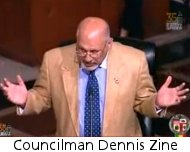
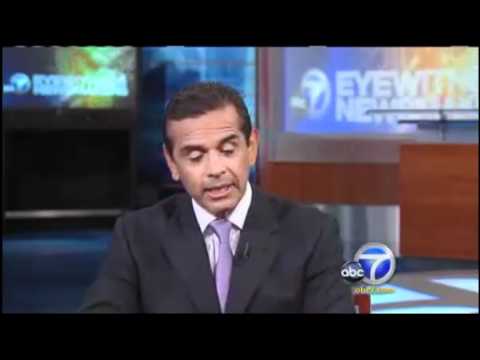



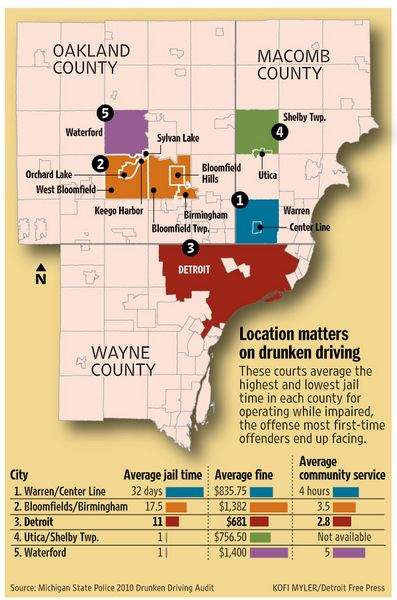
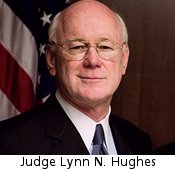
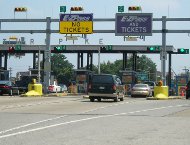
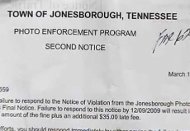
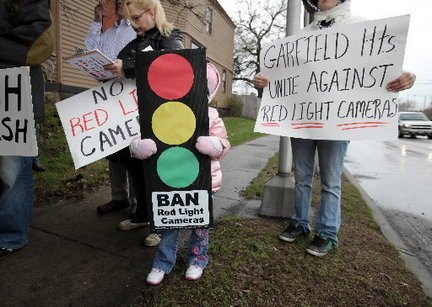
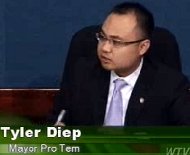
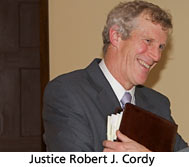

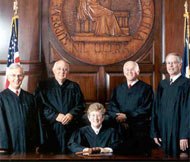
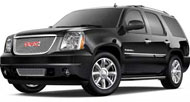

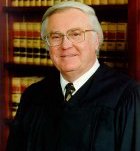
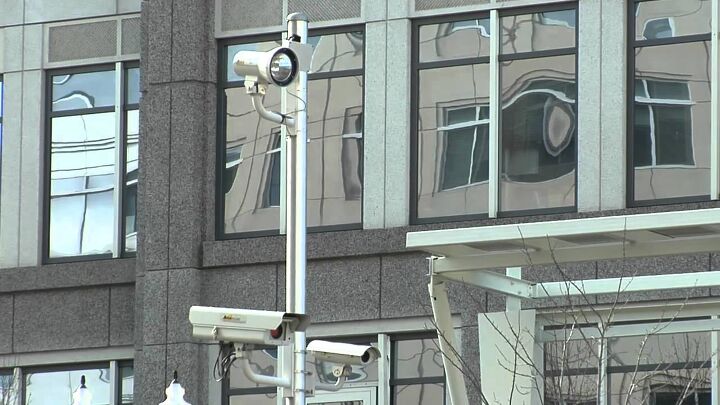
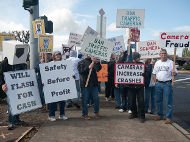
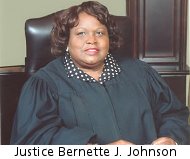


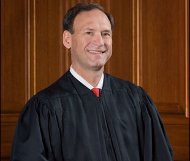
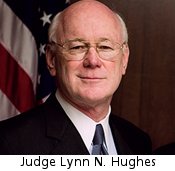

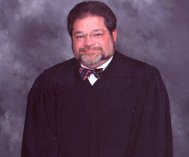

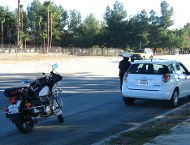


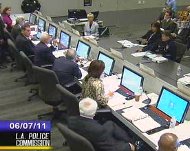

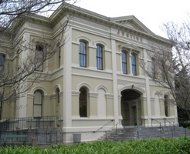
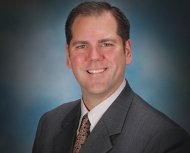

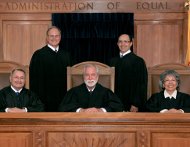


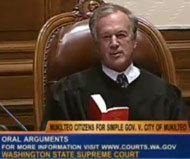

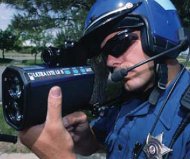

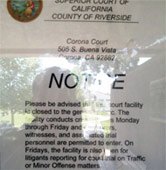
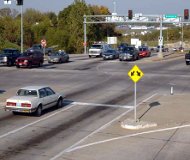



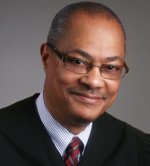


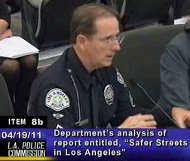












Recent Comments